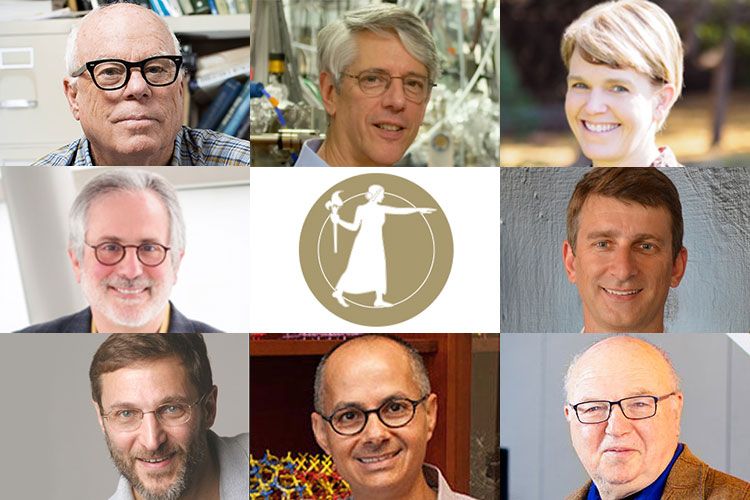Eight Berkeley faculty elected to National Academy of Sciences
UC Berkeley now has 135 faculty who are members of the academy

May 1, 2019
In recognition of their outstanding achievements in original research, eight UC Berkeley faculty have been elected members of the National Academy of Sciences, one of the most distinguished scientific organizations in the country.
The newly elected researchers include a neuroscientist, two physicists, two cellular biologists, a computer scientist, a chemist and an economist, and bring the total number of living UC Berkeley faculty who are members of the academy to 135.
Martin Banks is a professor of optometry, vision science, neuroscience and psychology in the School of Optometry and the Helen Wills Neuroscience Institute. His research explores how humans use multiple senses to perceive the world around us and how this might affect our experience of 3D virtual environments.
Physics professor Roger Falcone uses X-rays to study how materials behave under extreme temperatures and pressures. He is an affiliated member of Berkeley’s Energy and Resources Group and Applied Science and Technology Program.
Rebecca Heald, professor of cell and molecular biology, studies extracts from frog eggs to understand the intricate mechanics behind cell division and to find what factors control how big cells grow.
David Raulet is Esther and Wendy Schekman Chair of Cancer Biology and professor in the Department of Molecular and Cell Biology. He investigates immune cells called natural killer cells, which identify and destroy infected and cancerous cells in the body, with the goal of designing new cancer immunotherapies.
Uros Seljak, professor of physics and astronomy, is co-director of the Berkeley Center for Cosmological Physics and a senior scientist at Lawrence Berkeley National Laboratory. His work uses observations of the cosmos to try to understand fundamental properties of the universe, including the nature of dark matter and dark energy and how the universe formed.
Electrical engineering and computer science professor Scott Shenker, considered to be one of the top computer scientists in the country, has designed new ways to configure complex computer networks.
Chemistry professor Omar Yaghi, who is also a senior scientist at Lawrence Berkeley National Lab, has pioneered new molecular structures called metal-organic frameworks, whose gas- and particle-absorbing abilities could be used to capture and store greenhouse gases, create next generation batteries and supercapacitors or develop devices for efficient water filtration and drug delivery.
David Zilberman, Robinson Chair of in the Department of Agricultural and Resource Economics, develops economic models to understand fundamental problems in agriculture, economics and policy and is the recipient of the 2019 Wolf Prize in Agriculture.
Established in 1863, the National Academy of Sciences is a private, nonprofit institution that, along with the National Academy of Engineering and the National Academy of Medicine, provides science, engineering and health policy advice to the federal government and other organizations. The eight Berkeley faculty members are among 100 new members and 25 foreign associates added to the society this year.